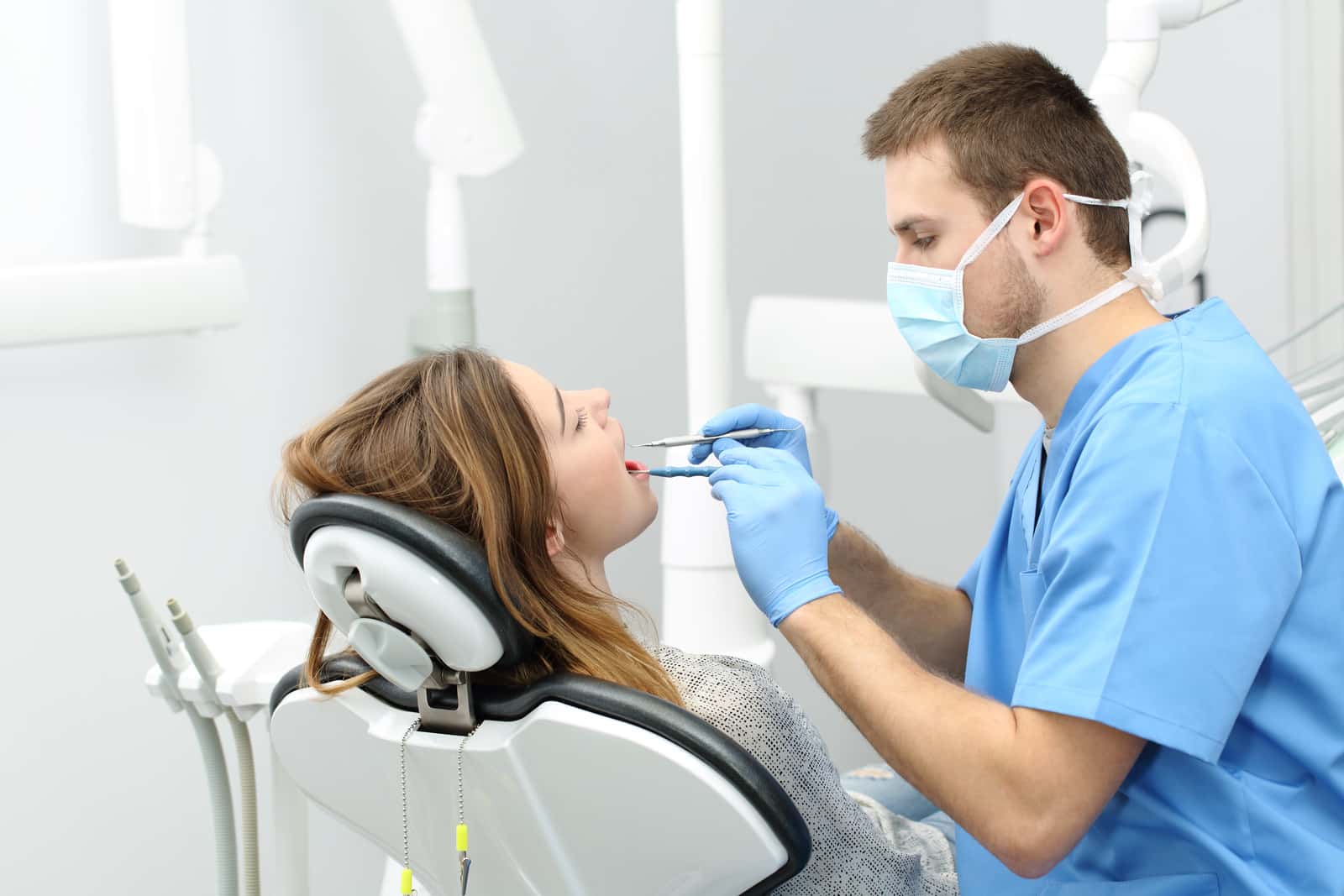What to Get out of Your Initial Visit to a Dentist in Eugene Oregon
What to Get out of Your Initial Visit to a Dentist in Eugene Oregon
Blog Article
Check Out the Series Of Dental Issues Dentists Typically Take Care Of
From the prevalent problem of dental caries triggered by microbial task to the more perilous development of gum tissue condition, oral experts must be experienced at very early detection and intervention. Tooth sensitivity, often resulting from used enamel, adds an additional layer of intricacy, while the early identification of oral cancer can be life-saving.
Dental Caries and Dental Caries
While preserving optimum dental health is vital, dental caries and tooth decay remain prevalent problems that dental professionals frequently address. Tooth cavities, likewise understood as cavities, are brought on by the demineralization of tooth enamel because of acid-producing bacteria in the mouth. These microorganisms thrive on sugars and starches from food and drinks, developing a cycle of acid strikes that gradually deteriorate the enamel and dentin layers of teeth. If left neglected, tooth cavities can bring about considerable oral problems, including infections and tooth loss.
To diagnose cavities and tooth degeneration, dental professionals utilize a mix of aesthetic assessments, oral X-rays, and in some cases laser fluorescence gadgets. For even more sophisticated decay, a dental practitioner might need to eliminate the jeopardized tissue and restore the tooth with fillings made from materials such as composite resin, amalgam, or porcelain.
Preventive procedures are vital in combating dental caries and dental caries. Regular dental check-ups, appropriate cleaning and flossing strategies, and a balanced diet regimen low in sugary foods and drinks are basic practices that sustain dental health and reduce the danger of cavities.
Gum Tissue Disease

This triggers the periodontals to draw away from the teeth, creating pockets that become contaminated. As the body's immune system fights the germs, the bone and connective cells that hold teeth in place are broken down.
Dental practitioners diagnose periodontal disease through clinical exam and periodontal probing to measure pocket depths around the teeth. Therapy may entail scaling and origin planing to remove tartar and bacteria from tooth surface areas and underneath the gum tissues. In extreme instances, medical interventions like flap surgical treatment or bone grafts are required to restore dental wellness. Keeping proper oral hygiene and routine oral check-ups are vital for avoiding periodontal disease.

Tooth Level Of Sensitivity
Beyond gum disease, another typical oral problem that clients frequently encounter is tooth sensitivity. Characterized by a sharp, transient discomfort in feedback to stimulations such as hot, cold, pleasant, or acidic foods and drinks, tooth sensitivity can significantly influence a person's high quality of life.
Additionally, oral treatments, broken teeth, and gum tissue illness can reveal the dentin. To mitigate tooth sensitivity, dentists might advise making use of tooth paste created for sensitive teeth, fluoride therapies to reinforce enamel, or dental bonding to cover subjected dentin.
Inevitably, resolving tooth sensitivity needs an extensive strategy that includes both safety nets and targeted therapies to reduce discomfort and safeguard the oral structures.
Dental Cancer
Oral cancer cells, a major and possibly dangerous problem, usually flies under the radar in routine oral treatment discussions. This kind of cancer can impact any kind of part of the mouth, including the lips, tongue, cheeks, flooring of the mouth, difficult and soft tastes, sinuses, and throat. Early detection is crucial for successful therapy, yet lots of cases are detected at advanced phases because of refined initial signs and symptoms.
Misaligned Bites
Misaligned bites, likewise referred to as malocclusions, are a common oral concern that can substantially influence both dental description wellness and general quality of life - dentist in eugene oregon. These conditions take place when the check this site out top and lower teeth do not align correctly, leading to problems in biting, chewing, and also speaking. Malocclusions can be classified into various kinds, including overbites, underbites, crossbites, and open attacks, each providing unique obstacles that call for customized treatment techniques
The sources of misaligned attacks are varied and can include genetic variables, early loss of baby teeth, thumb sucking, and injuries to the jaw. Signs often include discomfort or pain in the jaw, frequent attacking of the inner cheeks, and a raised danger of tooth degeneration and gum disease due to trouble in keeping oral hygiene.
Orthodontists and dental professionals use a series of treatments to address misaligned attacks, from clear aligners and traditional dental braces to advanced surgical treatments in severe situations. Early medical diagnosis and treatment are important to avoid issues such as temporomandibular joint (TMJ) disorders and uncommon endure teeth. Via extensive assessment and tailored therapy plans, oral professionals play an essential duty in fixing malocclusions and improving people' dental feature and visual appeals.
Verdict
Cavities and tooth degeneration result from bacterial activity that compromises tooth enamel, while gum tissue condition can intensify from gingivitis to serious periodontal conditions. Tooth level of sensitivity includes discomfort from thermal stimuli, necessitating certain treatment.
To diagnose tooth cavities and tooth decay, dental experts use a mix of aesthetic assessments, pop over to these guys dental X-rays, and sometimes laser fluorescence devices.Beyond gum illness, another usual oral concern that clients regularly run into is tooth sensitivity. In addition, dental procedures, broken teeth, and gum tissue condition can reveal the dentin. To mitigate tooth level of sensitivity, dentists might recommend using toothpaste developed for delicate teeth, fluoride treatments to strengthen enamel, or oral bonding to cover subjected dentin. Dental caries and tooth decay result from microbial activity that jeopardizes tooth enamel, while gum tissue condition can rise from gingivitis to extreme periodontal conditions.
Report this page